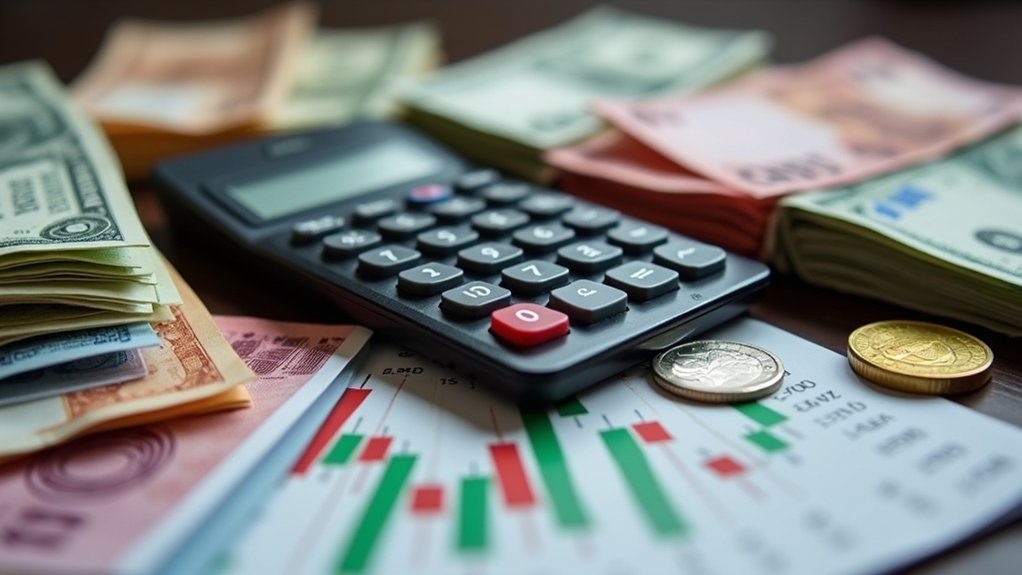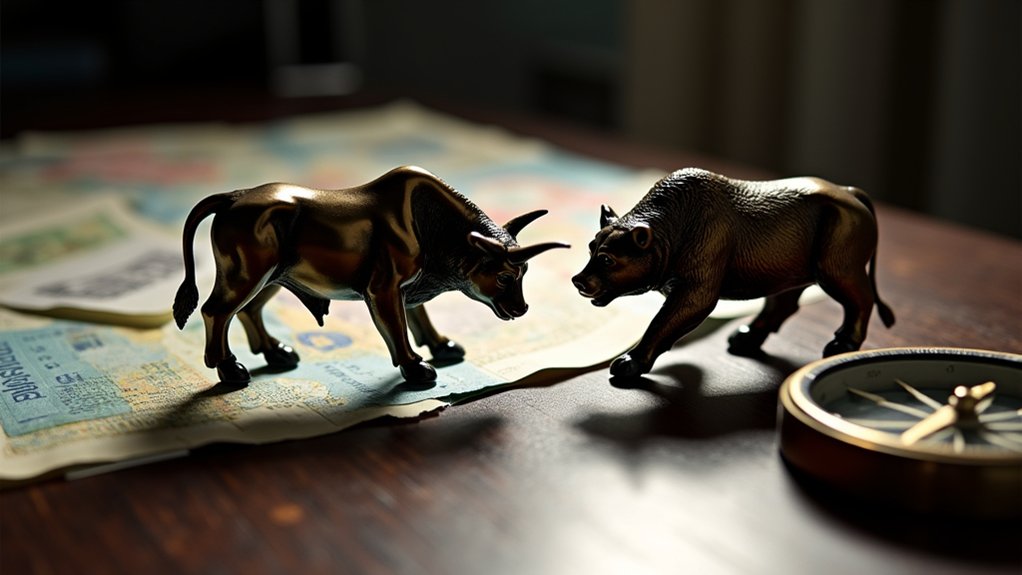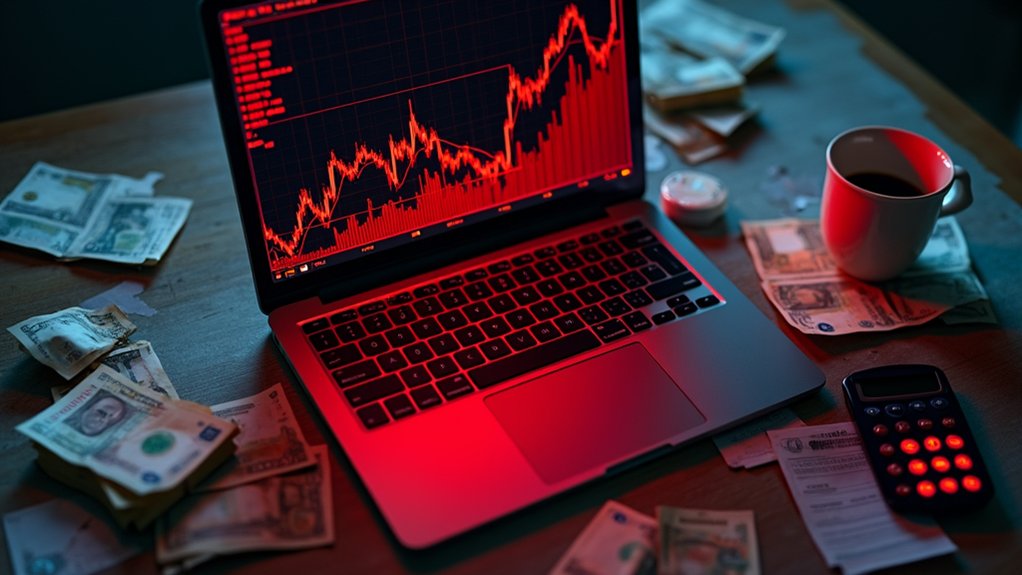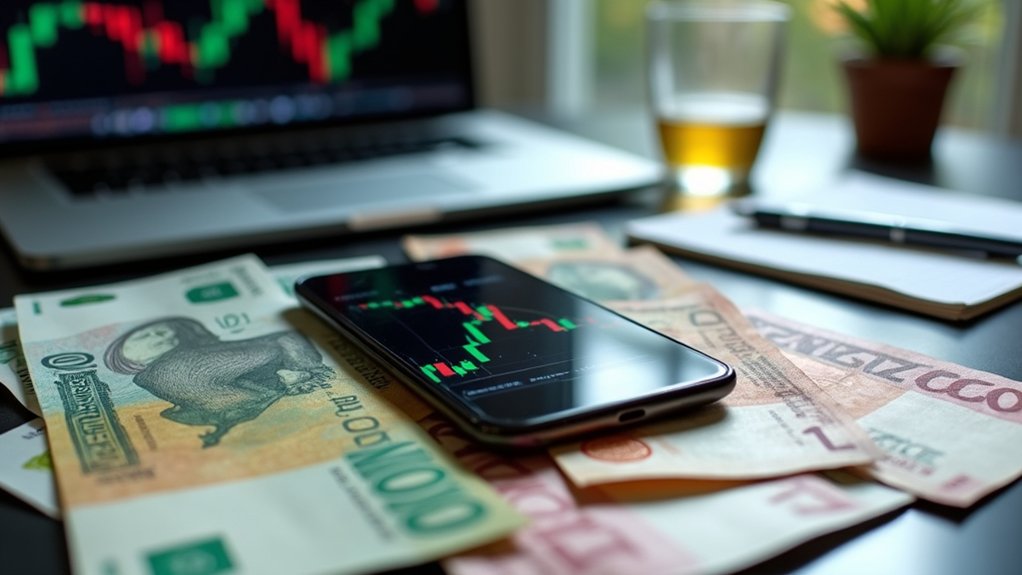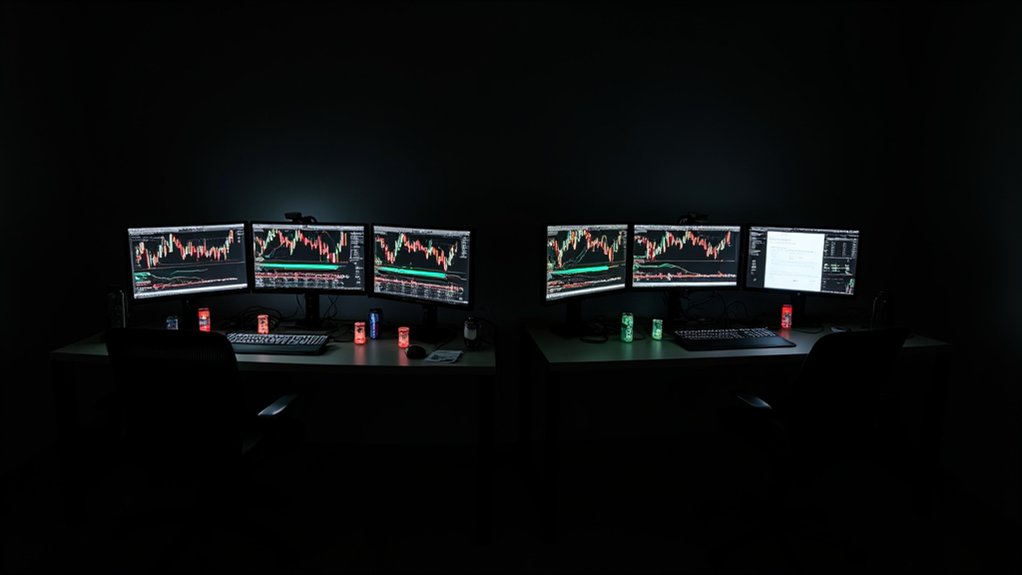Long-term Forex success typically requires at least four years of serious screen time—not casual dabbling or binging YouTube gurus. Experienced traders keep Forex exposure under five percent of total capital, use stop-loss orders religiously, and diversify across currency pairs to manage risk. Emotional control matters more than technical wizardry since greed and fear wreck accounts faster than bad trades. Most profitable traders spent years refining strategies through losses and constant adjustment. The regulatory environment varies wildly by region, and mentorship access remains uneven. The fundamentals below explain what separates survivors from casualties.
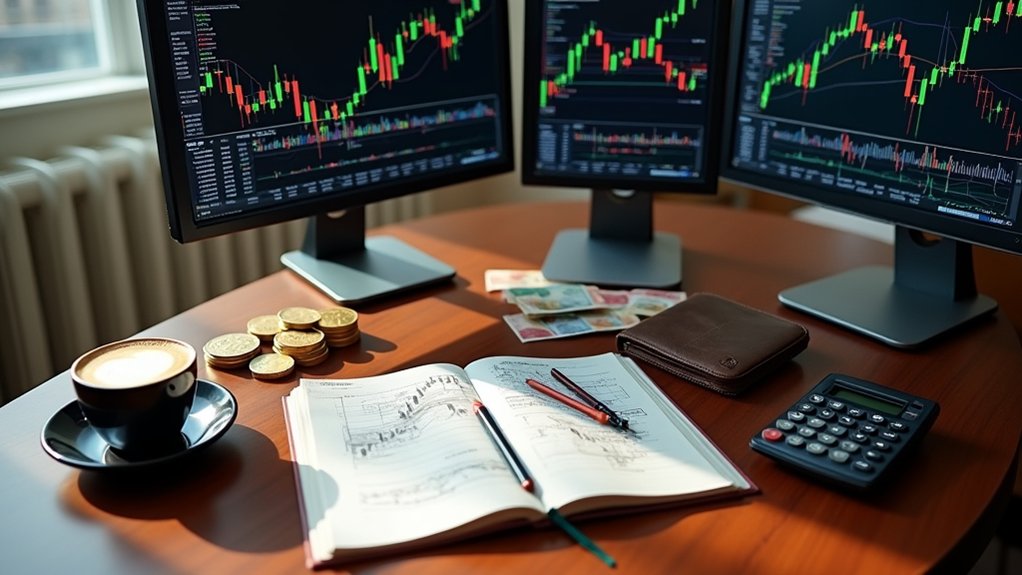
The market is massive, liquid, and volatile. Currency pairs swing based on global economic conditions that African traders have zero control over. A policy decision in Washington or Frankfurt can wipe out a Kenyan trader's account before breakfast. That's the brutal truth about playing in a market designed and regulated elsewhere.
Long-term success—if it happens—demands at least four years of experience. Not four years of dabbling. Four years of serious commitment, screen time, losses, and lessons. Most profitable traders across South Africa, Nigeria, and Egypt didn't crack the code in six months watching YouTube gurus. They spent years refining strategies through technical analysis, studying patterns, and adjusting to market changes constantly.
Capital management separates survivors from casualties. Experienced traders typically allocate less than five percent of their budget to Forex. They use stop-loss orders religiously. They diversify across currency pairs. They prioritize not losing money over making it fast. Sounds boring compared to the Instagram lifestyle marketed by signal sellers in Lagos or Johannesburg, but preservation beats desperation every time. Setting both stop-loss and take-profit points improves risk control and protects capital from emotional decision-making during volatile market swings. Appropriate position sizing prevents traders from risking too much capital on any single trade, reducing exposure to catastrophic losses. Effective risk-reward ratios help traders ensure that potential profits justify the risks taken on each trade, creating a mathematical edge over time.
The psychological warfare is relentless. Greed and fear drive impulsive decisions that drain accounts faster than any bad trade. Emotional control matters more than technical knowledge in many cases. Stress management, mental preparation for volatility, learning from mistakes instead of repeating them—these aren't optional soft skills. They're survival requirements in a market that doesn't care about your rent payment in Accra or school fees in Nairobi. Early winning streaks can create dangerous false confidence that sabotages long-term skill development and disciplined execution. Successful traders develop mental resilience that allows them to remain objective and execute their strategies despite inevitable losses and market turbulence.
Educational access remains wildly uneven across the continent. Regions with better resources and mentorship programs show higher success rates, but even then, success remains rare. Professional training programs, continuous learning, engagement with legitimate trading communities—all necessary. All time-consuming. Building a reliable trading approach requires consistent application of proven principles rather than jumping between methods when facing temporary setbacks.
The regulatory environment adds another layer. While North America and Europe offer stricter protections, African traders often deal with brokers operating in gray zones. Mauritius has decent oversight. South Africa too. But many countries lack meaningful regulations, leaving traders exposed to unscrupulous operators.
Time commitment is non-negotiable. Successful traders dedicate hours daily to analysis, execution, and strategy refinement. Systematic approaches like swing trading or day trading require discipline that most people simply don't possess. Sticking to a strategy without emotional deviation is essential. Crucial and exhausting. That's long-term Forex trading across Africa. Possible, but rarely profitable.
Common Questions
Which Brokers Accept Mobile Money Deposits From Kenya, Ghana, or Nigeria?
HFM accepts M-Pesa, Airtel Money, and MTN Mobile Money across Kenya, Ghana, and Nigeria—deposits start at KES 700 or 50 GHS with instant processing. LiteFinance takes mobile payments in all three countries but charges fees in Kenya (70 KES) and Nigeria (100 NGN).
Exness supports mobile money in Ghana but not directly in Kenya or Nigeria yet. Pepperstone and Trade Nation also handle M-Pesa for Kenyan traders. Mobile money's the easiest deposit route for most African accounts.
How Do Currency Restrictions in Zimbabwe or Nigeria Affect Withdrawal Timelines?
Zimbabwe's new rules hit hard. The offshore withdrawal limit dropped from USD 10,000 to USD 2,000—meant to keep dollars in-country. Exporters now surrender 30% of earnings instead of 25%.
Processing delays stretch longer because of tax clearance requirements and cash margins for the interbank market. Nigeria faces similar bottlenecks with CBN approval processes for forex access.
Both countries? Traders wait days or weeks for withdrawals that used to take hours. Capital controls slow everything down.
Can I Trade Forex Legally in Algeria or Ethiopia With Current Regulations?
Algeria permits forex trading technically, but strict foreign exchange controls by the Bank of Algeria make it challenging.
Only authorized brokers meeting Algerian standards can operate legally.
Adults face a €750 annual foreign exchange cap, and moving capital abroad requires compliance with tight regulations.
The 2025 cryptocurrency ban shows authorities' control stance.
Ethiopia's situation wasn't covered in available data.
Algerian traders must navigate heavy restrictions—legal doesn't mean easy.
What Happens to My Trades During Frequent Internet Outages in My Country?
Trades don't pause politely when the internet cuts out.
Open positions sit there, exposed, while the market does whatever it wants. Stop-losses might not trigger. Margin calls can hit without warning.
That EA running a scalping strategy? Dead in the water. Slippage gets worse, orders execute at garbage prices—if they execute at all.
Nigerian traders know this dance. Ghanaian traders too. A backup connection or VPS helps, but outages still eat profits and pile up risk fast.
How Do South African Rand Pairs Behave Differently From Major Currency Pairs?
USD/ZAR swings harder than EUR/USD. Way harder. South Africa's economy runs on commodities—gold, platinum—so when those prices jump, the rand reacts.
Political drama? Same thing. Spreads are wider too, even though liquidity's decent. Major pairs like EUR/USD move on G7 central bank decisions and trade data.
Predictable stuff. The rand? It's emerging market territory. Local headlines hit different. A mining strike in Johannesburg matters more than Fed minutes sometimes. Volatility's the name of the game with rand pairs.

